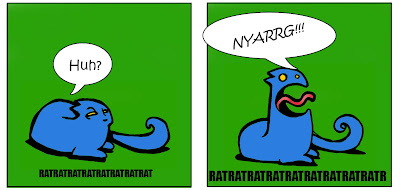Well, I failed. It's 7-30pm on Friday night, and I know now that I'm not going to have Sterkarm 3 with my agent by tomorrow, September 1st.
I tried hard. I finished the book. I'm a lot further on than if I hadn't set the deadline - but I'm going to have to ask for an extension. Wednesday 5th seems a reasonable goal.
What I still have to do is a final read through, while removing all the headings which helped me find my way around in 138,000 words. I'm about a quarter of the way through, on Chapter 10.
What's held me up? Well - violins, please - a flare-up of tendonitis has not helped. I am pecking out this blog with my left hand. My right arm in a sling because it's so uncomfortable and at least, in a sling, it aches a little less. It hurts to pick up an envelope right-handed.
This slowed me down - and I had to spend time at the doctor's, getting some anti-inflammatory tablets.
Happier interruptions - I sold a book through my website's new book-store, and had to pack up the book and post it. Thank you, kind person. The book is on its way.
Also my cousin phoned from Switzerland, to ask, could he book me to tell spooky stories in November, to the kids in his Swiss school - via webcam and Skype? Now this is something I've been thinking about for a while, and Alan has given me a useful shove. I shall resurrect my Skype account, get a webcam, and learn to use it. And then I shall offer virtual school visits - and maybe one-to-one writing advice via webcam, instead of just e-mail.
Get me - the virtual writer.
And here, especially dedicated to all those of you out there wrestling with edits, is Blott.
I tried hard. I finished the book. I'm a lot further on than if I hadn't set the deadline - but I'm going to have to ask for an extension. Wednesday 5th seems a reasonable goal.
What I still have to do is a final read through, while removing all the headings which helped me find my way around in 138,000 words. I'm about a quarter of the way through, on Chapter 10.
What's held me up? Well - violins, please - a flare-up of tendonitis has not helped. I am pecking out this blog with my left hand. My right arm in a sling because it's so uncomfortable and at least, in a sling, it aches a little less. It hurts to pick up an envelope right-handed.
This slowed me down - and I had to spend time at the doctor's, getting some anti-inflammatory tablets.
Happier interruptions - I sold a book through my website's new book-store, and had to pack up the book and post it. Thank you, kind person. The book is on its way.
Also my cousin phoned from Switzerland, to ask, could he book me to tell spooky stories in November, to the kids in his Swiss school - via webcam and Skype? Now this is something I've been thinking about for a while, and Alan has given me a useful shove. I shall resurrect my Skype account, get a webcam, and learn to use it. And then I shall offer virtual school visits - and maybe one-to-one writing advice via webcam, instead of just e-mail.
Get me - the virtual writer.
And here, especially dedicated to all those of you out there wrestling with edits, is Blott.
.jpg)
.jpg)
.jpg)





































